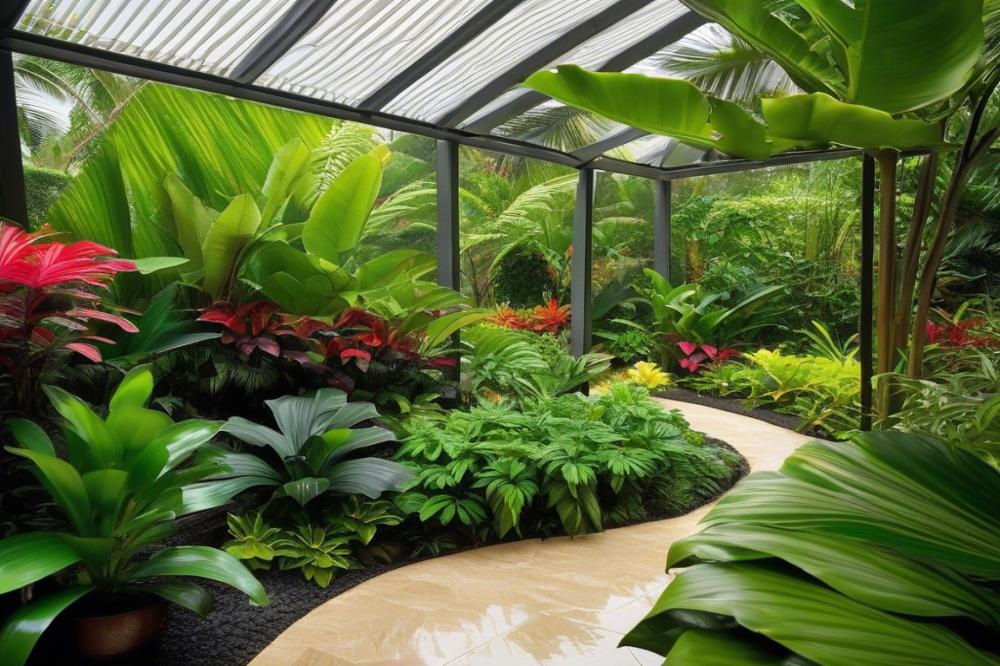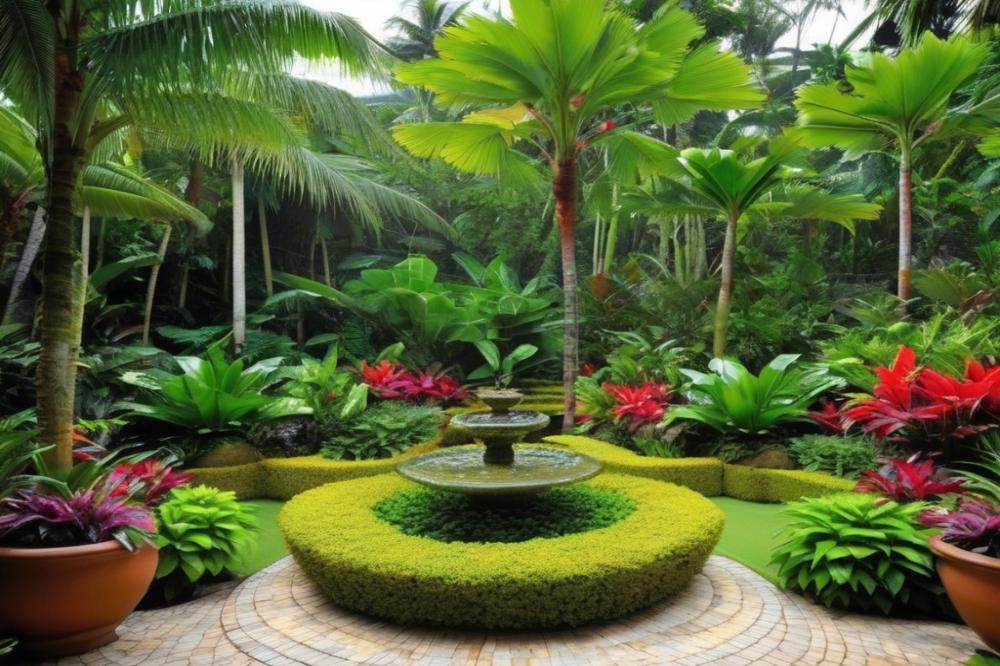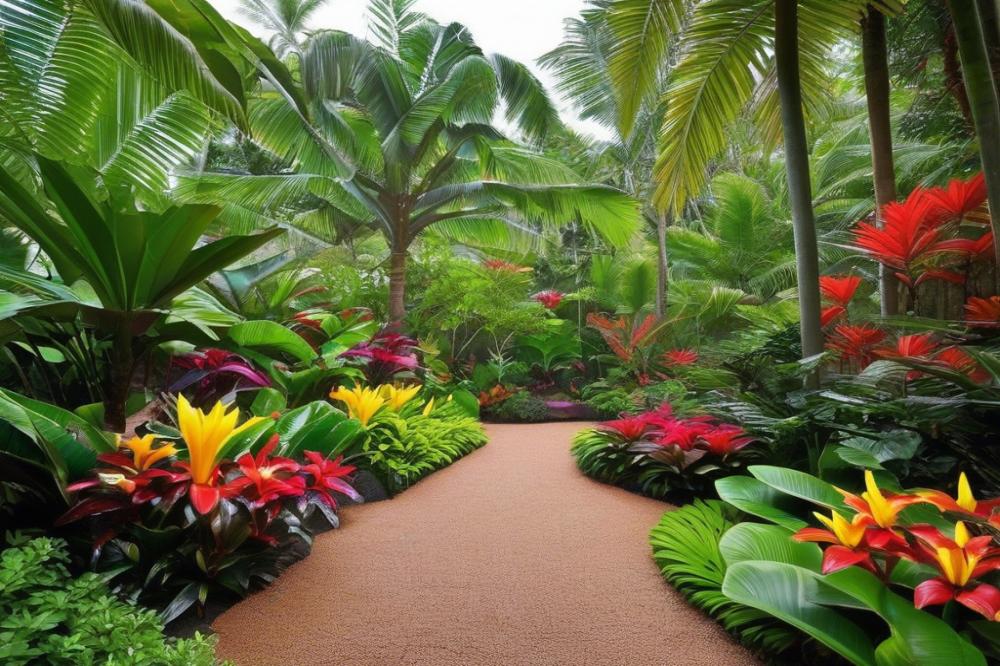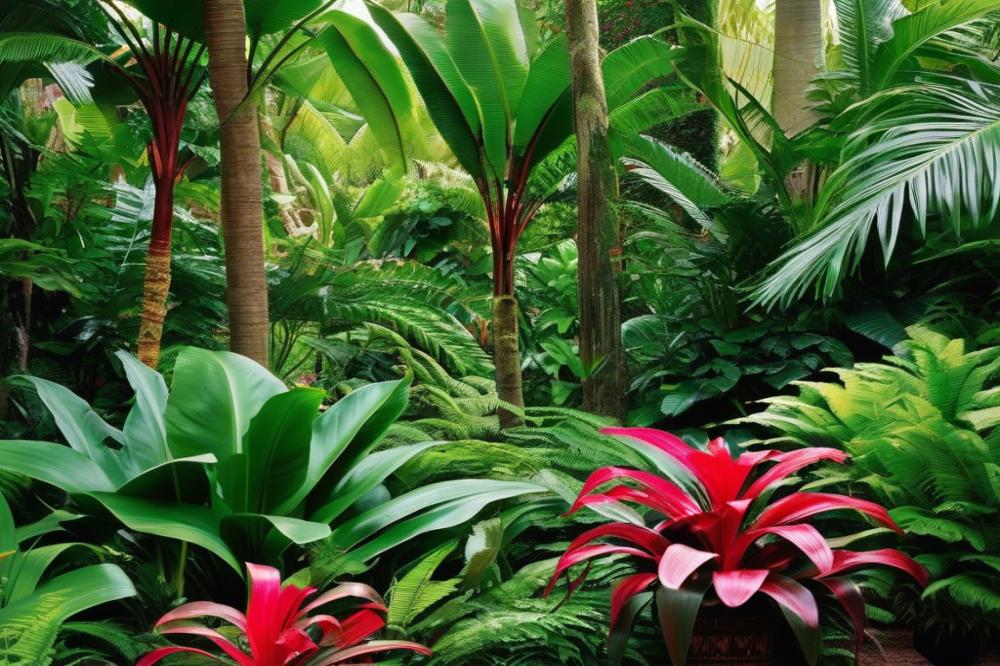Exploring the Needs of Tropical gardens
Tropical gardens showcase an incredible variety of vibrant plants. Their lush greenery and colorful blooms create a paradise that many dream of. However, these gardens have specific requirements when it comes to soil. The biodiversity found in tropical areas demands a balanced and rich planting medium, leading to a quest for the ideal mix.
A suitable soil mix is crucial for supporting tropical plants. Without the right components, growth can stifle. For optimal health, plants need a well-draining soil that can retain moisture without becoming waterlogged. This balance plays a significant role in soil fertility and plant vitality.
So, what should this perfect potting mix include? Key elements such as coconut coir, compost, perlite, and vermiculite come into play. coconut coir improves moisture retention while adding organic soil amendments enhances nutrient availability. Perlite and vermiculite are essential in creating aeration and drainage within the soil. Lastly, monitoring the pH balance provides a stable environment for roots to thrive.
Gardening in tropical regions offers rewards, but the right preparation cannot be overlooked. By understanding and catering to the unique needs of tropical plants, anyone can cultivate a thriving, beautiful garden. A carefully crafted tropical garden soil mix lays the foundation for flourishing greenery.
Understanding tropical garden soil mix


A tropical garden soil mix is designed to meet the specific needs of vibrant, lush plants typically found in warm, humid climates. This type of soil is vital for creating a thriving environment for your tropical plants. It primarily consists of organic materials that help promote healthy growth.
Role of well-draining soil in Tropical Gardening
Well-draining soil is crucial for the success of a tropical garden. This type of soil prevents water from accumulating and causing root rot, a common issue in wet climates. Incorporating materials such as perlite and coconut coir into your garden soil preparation can enhance drainage significantly. The combination of these components provides the right balance for healthy roots.
Importance of Soil Fertility for the Growth of Tropical Plants
Soil fertility plays a major role in the development of tropical plants. Rich, nutrient-dense soil can support rapid growth and vibrant blooms. Compost acts as a natural fertilizer, enriching the soil while promoting biodiversity. Additionally, maintaining the right pH balance is essential for nutrient absorption. Without proper soil fertility, your gardening efforts may yield disappointing results.
Moisture retention is another key factor. While tropical plants love water, they can suffer if the soil remains soggy. Mixing in vermiculite helps retain moisture while allowing excess water to drain away. This balance creates an ideal habitat for your tropical garden.
When planning your soil mix, consider the distinct requirements of the plants you want to grow. Each species may thrive best with different soil components. Experimenting with ratios of organic material, drainage aids, and fertilizer can lead to unique plant growth. Tailoring a soil mix to your garden’s specifics can lead to successful gardening adventures.
Key Components of an Ideal Soil Mix


Coconut Coir: Properties and Benefits
Coconut coir is an excellent choice for tropical gardens. It comes from the husk of coconuts and has impressive properties. This material enhances soil structure while providing good aeration. It also contributes to a balanced pH, which is important for tropical plants. Using coconut coir in your mix can help you create well-draining soil that doesn’t compact easily.
Compost: Enhancing Nutrients and Organic Matter
Next, compost plays a crucial role in soil fertility. It enriches the soil with essential nutrients that plants need to thrive. As it breaks down, compost introduces organic matter that improves texture. Tropical plants benefit greatly from this added layer of nutrients. Moreover, it fosters beneficial microbial activity—an essential component for healthy soil.
Perlite: Improving Aeration and Drainage
Incorporating perlite into your garden soil preparation can make a significant difference. This lightweight, volcanic rock is known for boosting drainage. It creates air pockets in the soil, preventing it from becoming too compact. This is vital for tropical settings, where excess moisture can hinder plant growth. The right amount of perlite ensures roots have access to both air and water.
Vermiculite: Moisture Retention and Nutrient Exchange
Lastly, consider adding vermiculite to your mix. This mineral helps retain moisture, which is crucial during dry spells. It also aids in nutrient exchange, ensuring that plants can absorb what they need. Vermiculite can be especially beneficial in warm climates typical of tropical gardens. Its ability to hold moisture means less frequent watering and healthier plants overall.
Soil Preparation Techniques


Testing and Adjusting pH Balance for Tropical Plants
Before planting, testing the pH balance of your soil is crucial for tropical plants. Most tropical plants thrive in slightly acidic to neutral soil, ideally with a pH of 6.0 to 7.0. A simple soil test kit can help you determine your current pH level. If the pH is too low, adding lime can raise it. Conversely, if it’s too high, sulfur can help bring those levels down. Regularly monitoring the pH ensures optimal soil fertility for your plants.
Steps for Mixing Coconut Coir, Compost, Perlite, and Vermiculite
Creating a productive mix is essential. Start with coconut coir as it provides excellent moisture retention. This organic material aids in improving the soil structure. Next, incorporate well-decomposed compost. It enriches the soil with nutrients. Perlite adds aeration, promoting healthy root growth by preventing compaction. Lastly, vermiculite improves drainage while still retaining moisture. Aim for a blend that consists of one part coir, one part compost, and one part each of perlite and vermiculite. Mix them thoroughly to achieve a consistent texture.
Importance of Creating a Balanced Texture and Consistency
A balanced texture is key to successful garden soil preparation. An ideal mix allows roots to breathe while retaining moisture. Each ingredient plays a vital role in achieving this balance. Without the right consistency, tropical plants may struggle to thrive. They need a medium that holds enough water while not becoming soggy. A heterogeneous mixture prevents water from pooling, which can lead to root rot. Spending time on this process leads to healthier, more vibrant plants.
Maintaining Soil Health in Tropical Gardens


Enhancing soil fertility is crucial for vibrant tropical plants. Regularly adding compost is one effective technique. Compost contributes nutrients, fostering healthy growth. Additionally, incorporating coconut coir improves moisture retention. This helps maintain a well-draining soil mix throughout dry spells.
Mulching and Cover Crops
Mulching provides many benefits in a tropical garden. A layer of organic mulch reduces evaporation. This keeps the soil cooler and retains necessary moisture. It also suppresses weeds, letting your plants thrive. Furthermore, consider using cover crops during the off-season. These plants fix nitrogen in the soil, boosting fertility naturally.
Monitoring Moisture Levels
Watering practices play a vital role in soil health. Always monitor moisture levels carefully. Irrigate your garden based on rainfall conditions and plant needs. Use a moisture meter if needed. Adjusting irrigation helps maintain the right balance. Too much water can lead to root rot, while too little stunts growth.
Striving for the perfect pH balance is just as important. Tropical plants often prefer slightly acidic soil. Regular testing helps maintain this balance, minimizing problems in growth. Incorporate materials like perlite and vermiculite to improve aeration. These additions prevent compaction, allowing roots to spread easily.
Always keep an eye on your soil’s health. Healthy soil is the foundation of any successful garden. With these techniques, you can create lasting soil fertility. A thriving tropical garden starts from the ground up.
Final Thoughts on Tropical Garden Soil Mix
Recapping the best practices for a thriving garden, a suitable mix is crucial. Combine organic matter, like compost, with mineral resources such as perlite or vermiculite. This combination creates well-draining soil, which is essential for preventing root rot in humid environments. In addition, the inclusion of coconut coir improves moisture retention, ensuring your plants have what they need during dry spells.
Don’t hesitate to experiment with different ratios and components. Nature is diverse, and a unique mix could yield surprising results. Try altering the proportions of sand, loam, and organic materials. Each garden is different, so what works for one may not suit another. Find what suits your specific conditions, and don’t fear a little trial and error.
Ultimately, the importance of properly mixed soil cannot be overstated. A healthy garden begins with a strong foundation. Providing plants with the right nutrients and moisture balance leads to vibrant growth. A great soil mix sets the stage for beautiful foliage, abundant flowers, and tasty fruits. Take pride in your creation, knowing it’s the key to your tropical oasis. Happy gardening!



